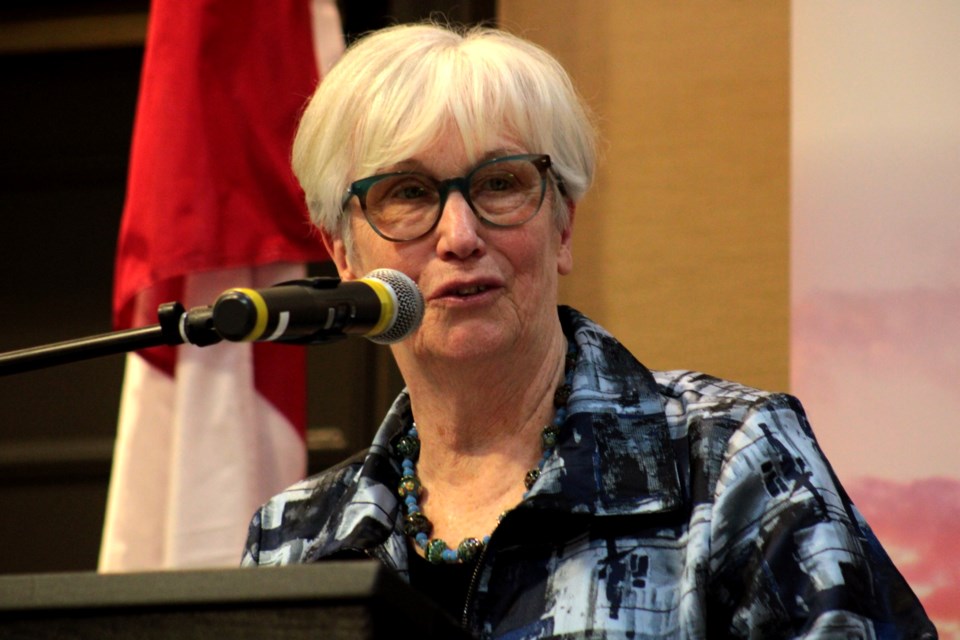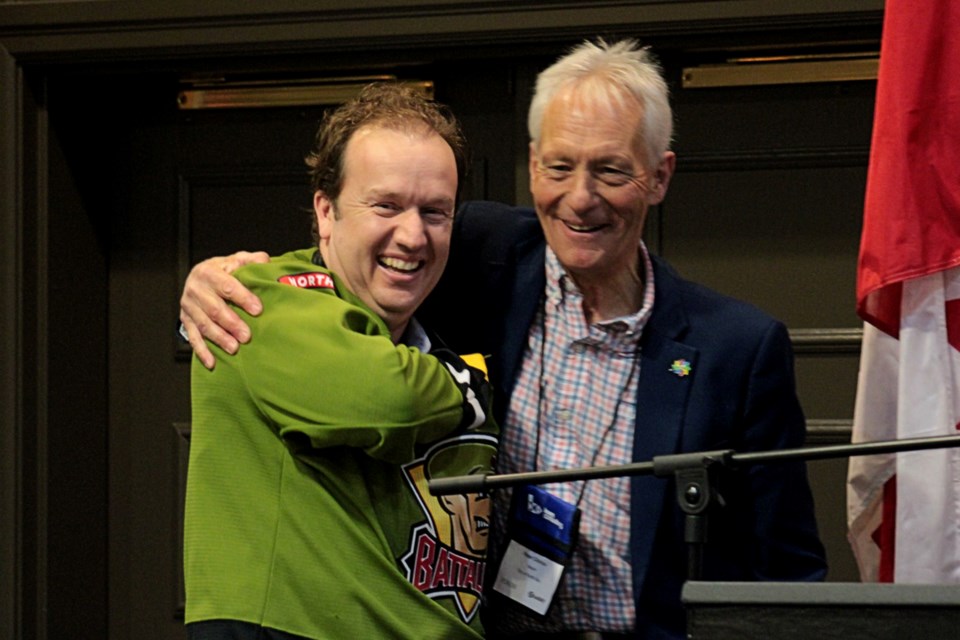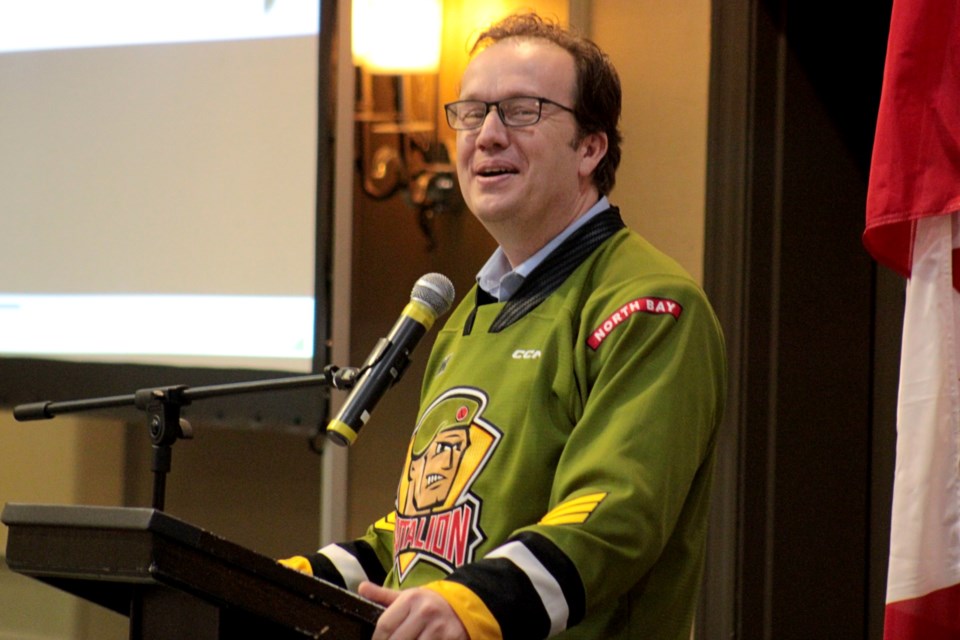Coming together under shared advocacy, municipal leaders have gathered in Sudbury this week for the annual Federation of Northern Ontario Municipalities conference.
The Northern Ontario municipal politicians have been joined by a collection of provincial ministers from Queen’s Park slated to speak during the conference.
“It’s all about coming together,” Greater Sudbury Mayor Paul Lefebvre said during his opening remarks, to “learn from each other, exchange ideas and explore innovative solutions.”
With a handful of provincial ministers in town for the conference, the City of Greater Sudbury has the province’s ear, which Greater Sudbury Mayor Paul Lefebvre said he’d continue to bend.
When it comes to matters such as health care, he told local members of the media during a mid-day break, “It’s continued advocacy.”
During today’s public remarks, Rural Ontario Municipal Association chair Robin Jones flagged provincial downloading of health-care responsibilities onto municipalities as an ongoing concern.
In 2022, she said rural municipalities in Ontario paid more than $481 million in health care despite it being provincial jurisdiction, while 525,000 rural Ontarians were without access to primary care and 60 per cent did not have access to mental health and addictions support.

“No one at the provincial level has been paying attention to the geographic disparities in accessing health services,” she said, adding the current government has an “unprecedented opportunity to set a new course.”
Lefebvre said much of this is echoed in Greater Sudbury, where the Lorraine Street transitional housing complex is being funded by the municipality due to the province declining to step up, and the supervised consumption site shut down due to a lack of provincial funding.
Meanwhile, he said 80 per cent of family doctors work in the former City of Sudbury, while only 20 per cent work in outlying communities.
“I’ve taken it upon myself to meet all the family doctors who are coming and visiting Sudbury that we’re aware of ... to tell them why they should be moving here and establishing their practices here,” he told local media, adding that there are both social and economic reasons for this, since people want to live and work where they have access to health care.
That said, he reiterated a point in last week’s State of the City Address, wherein he counted a projected net gain of family physicians both this year and next, with a potential jump of 12 by this autumn and 15 medical specialists anticipated to start this year.
As for transitional housing, Lefebvre said he’d be sharing early success stories from the Assertive Community Treatment Team currently working in Greater Sudbury. This municipally funded team of health-care professionals are working to assist the community’s most vulnerable residents attain permanent community housing. This effort is slated to ramp up and take residence at the transitional housing complex on Lorraine Street as soon as it opens.
“We’re seeing really good results, and that’s helping the province reduce the number of patients going to the hospital,” he said, adding that the province has recognized the importance of programs such as this by recently awarding funding to a similar project in Thunder Bay.

“If you want to break the cycle of homelessness, that is the only way, with the supports for people to stay in those homes that we provide to them,” Lefebvre said. “It’s not perfect, but right now we’re seeing some good results.”
With Greater Sudbury falling well short of its need for affordable housing, Lefebvre said advocacy for provincial funding toward affordable housing is ongoing.
The province has received criticism in recent months for neglecting to pitch in for Project Manitou, a 347-unit downtown apartment building with affordable units the federal and municipal governments have supported with funding and incentives. The province pledged nothing.
“I’m looking forward, that there will be some announcements on housing that the province is collaborating on,” Lefebvre said, adding, “We need more.”
The conference was slated to continue throughout today, through to mid-day Wednesday. Sudbury.com will be in attendance to report on what takes place.
It’s an important get-together of municipalities, Lefebvre told local media, since having a strong voice for Northern Ontario “adds a lot.”
When municipalities are divided and not on the same page, he said, “It’s really hard to advocate.”
Tyler Clarke covers city hall and political affairs for Sudbury.com.
